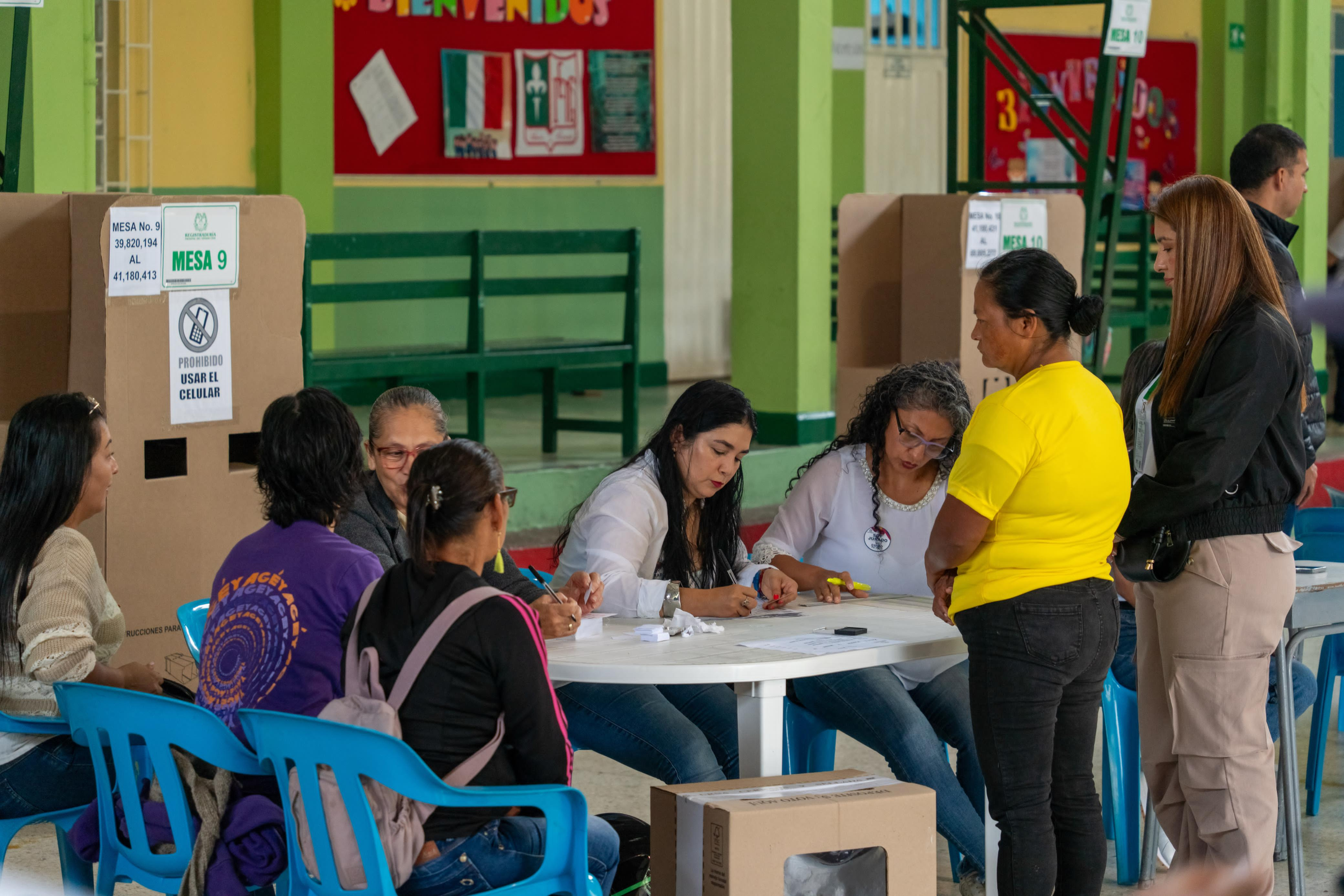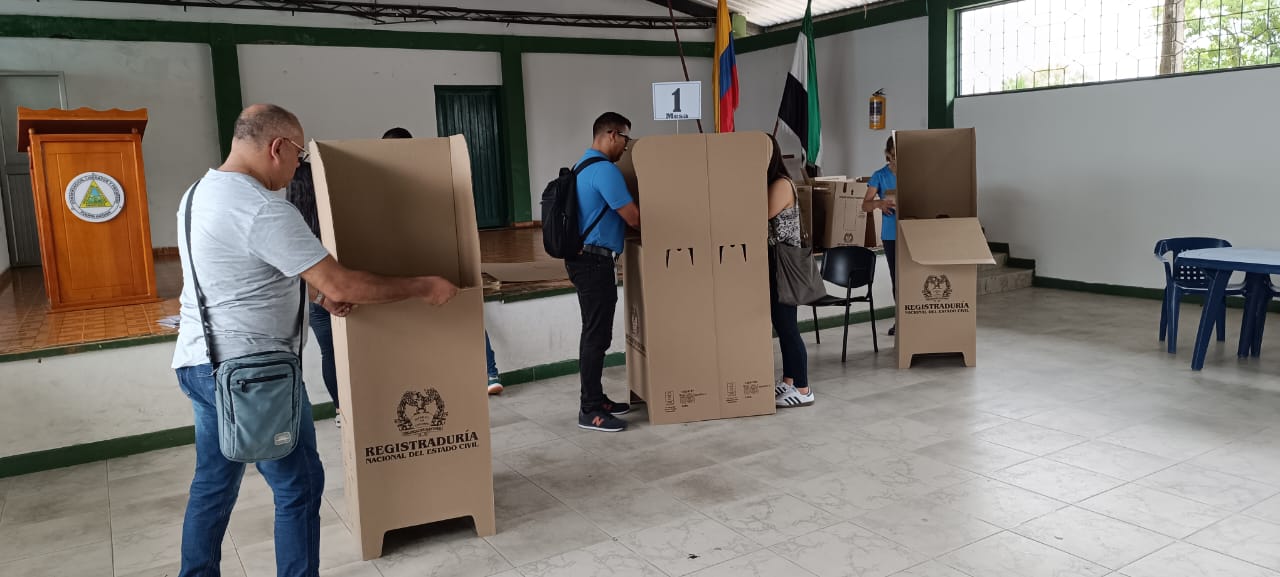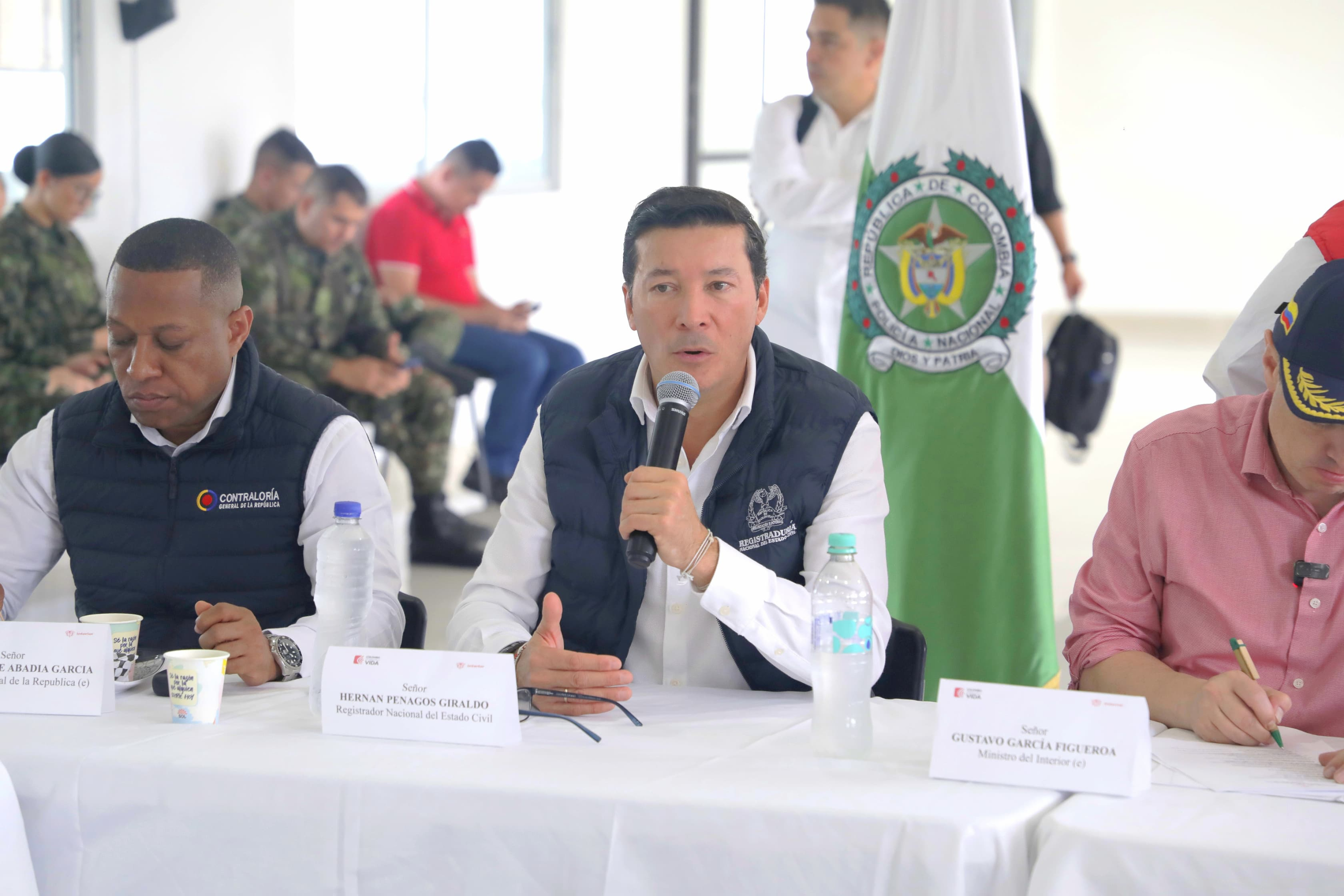'I don't know alias Araña': Putumayo governor-elect Jhon Molina

With 42,673 votes, or 39.83 percent of the ballot boxes, Jhon Gabriel Molina Acosta was elected as the new governor of Putumayo. He was followed by Jonny Fernando Portilla, with 29,352 votes.
It was his third attempt to become Governor, after having been manager of the Putumayo Energy Company and having been a deputy in the Departmental Assembly.
Regarding his victory, but also the challenges that this position brings him in terms of public order and infrastructure, as well as the controversies that accompanied his candidacy , EL TIEMPO interviewed him.
Why was he finally elected on this third occasion? 
Polling station in Mocoa, Putumayo. Photo: Registry Office
It is an accumulation, a job, a process. I have been persistent in these matters. I had a first attempt and if we compare it with the second, we grew electorally a lot. I got 23,000 votes the first time and the second time we got 54,000 votes without counting the vote in Santiago, where the elections were suspended. I assumed the seat as deputy of the department of Putumayo and I continued to advance efforts, I traveled around the department, I kept in contact with the communities, I managed to make some efforts at a national level aimed at getting important resources to the department of Putumayo. There is a good recognition towards Jhon Molina that has to do precisely with experience. In 2017 I was the person in charge of leading the entire process of recovery of the electrical system. People today in the department of Putumayo are tired of bad governments, they are tired of false promises and they are beginning to see in this opportunity that they need a person more committed to the department.
The 'Comandos de la Frontera' (Border Commandos) under the command of alias Araña are said to have pressured communities to vote for you. What do you have to say about this alleged support for your campaign? I am completely at peace with this issue. In Putumayo it has been very complex to do politics, adversaries always look for countless situations to attack, they have insulted me, they have slandered me. A year ago, precisely, one day before the election, they made a video of me with artificial intelligence where they related me to the 'Border Commands'. They said that I was the one who had led the strike, the armed strike in the department of Putumayo, where they perfectly imitated the entire newscast on Noticias Uno. In no way have we received support, all I have done is work and if you observe the development of our campaign the only thing you can find is the fervor and commitment of the people where we went. I was endorsed in a large coalition of the Conservative Party and MAIS. I would like that in these investigation processes you review how 12 of the 15 indigenous peoples decided to decisively support me through press conferences. The same thing happened with the Afro-descendant communities. Young people were the main protagonists in the campaign. What cannot be ignored is that Putumayo has been at war for more than 50 years, suffering violence for more than 50 years, where innocent people are the victims.
What armed groups operate in Putumayo? What is your assessment of public order? If we talk about the balance of this campaign, I want to say that I felt more insecure in the previous campaign, the one a year ago. That is, I felt that there were more disturbances of public order, a strike, many homicides. This time the campaign developed without major complications. The only sad event I remember is the murder of Elver Cerón, former mayor of Mocoa, who, in fact, was supporting me. The balance of the authorities, which I was able to keep a close eye on, is a calm balance, without major disturbances in any of the 13 municipalities of the department of Putumayo.

The polls in Putumayo opened at 8 am Photo: Registraduría
I made an assessment of the resources that the government had in the last decade. The government had approximately 7.5 billion pesos in royalties and its own resources to invest. In Putumayo, Mocoa, which is the capital of the department, does not have an aqueduct that guarantees the continuity of the service. It runs out of water two, three times a day. In the diagnoses with all the rural communities, in all the inspections, especially in middle and lower Putumayo, everyone demands aqueducts. We have 1,200 km of tertiary roads, all in poor condition, trails that prevent the countryside from being productive in the department.
What are you going to do to improve resource management in the department? 
PMU in Mocoa, Putumayo. Photo: Registry Office
I must ensure that resources are used transparently, that decisions are made that are directed toward the problems of the communities. Two, we need to work as a team. My campaign message was: we must unite as Putumayo residents, the parties have divided us and at the end of the year the problems remain the same. Today the call is for unity, for the unity of wisdom, experience, knowledge, but above all of the will of the Putumayo residents. We are going to govern with the 13 mayors, to work as a team, we are going to call upon the communities to work through the Community Action Boards. I set myself the challenge that, in two months, we manage to sign the pact in defense of the Amazon and for the development of the department of Putumayo, as they did in Catatumbo. As a deputy, I was very critical of the high homicide rate in the department of Putumayo. Faced with these issues: what to do or what do we propose from the proposal that we presented to the department of Putumayo? We propose two important actions: one has to be against crime head on, with the police, army and prosecutor's office, in order to counteract and restore order to the department of Putumayo. But the most important has to do with social investment, especially in rural and urban aqueducts, tertiary roads, electrification. There are more than 25,000 families receiving electric power in the department of Putumayo. I am going to propose electrifying 15,000 families and, in terms of tertiary roads, at least paving 100 kilometers, which is a definitive solution and will guarantee that the countryside is productive.
As governor, will you be critical or conciliatory? No, I have a more conciliatory position. I am one of those who bet on teamwork, I need the National Government, I need to ask the president to help me through his ministries in this bet of signing the pact in defense of the Amazon and for the development of the department of Putumayo. And I was also a person who promoted the plebiscite when Santos was president, I went out to the streets, I went out to march. I was also a promoter against glyphosate spraying in the department of Putumayo. Therefore, I have been joining this bet for total peace since last year and one of the requests that I am going to make to the president is that I join this great bet of the National Government to build total peace.
Speaking of total peace, what do you think about the capture of alias Araña in Bogotá, within the framework of this cycle of negotiations and dialogues with that group? Regarding this particular situation, it would be irresponsible to speak out because I do not know the legal framework under which the dialogue took place. Having a position on what happened would be irresponsible on my part, because I do not know. And in one way or another the authorities move forward under certain jurisdictions, so I cannot at this time question the decisions of an entity like the Prosecutor's Office.
Following protests by peasants against the capture of alias Araña, versions emerged that suggest they were forced by 'Border Commandos'. What do you know about this? Well, we strongly reject the idea that these peasants have been forced. No one can be forced, no one can go against their will. This cannot be the mechanism of pressure so that people try to go out and demonstrate against a situation, and in this way peace is not built. I believe that the authorities are competent to clarify, but there is a great responsibility and I must find a way to urgently meet with the peace commissioner so that he can inform me of how the table stands at this moment: what situation is, if it is, in crisis?
The 'Border Commandos' of alias Araña have never tried to contact you or your entourage? No, not at all. I totally reject those kinds of statements from whoever makes them. I don't know them. I haven't had any kind of meetings. You can check out my campaign, go around the territory: I met with the people, with the peasants. My agreements were with the communities of the Putumayo department, with the youth, with the Afro-descendant communities and I have nothing to hide. I think that people were able to observe our campaign, the only thing we breathed was a lot of fervor, a lot of commitment and a lot of joy from the people.
You may also like: 
The trial against Alvaro Uribe Velez resumed and more news. Photo:
Juan Pablo Penagos Ramirez
Politics and Nation Editorial
eltiempo






